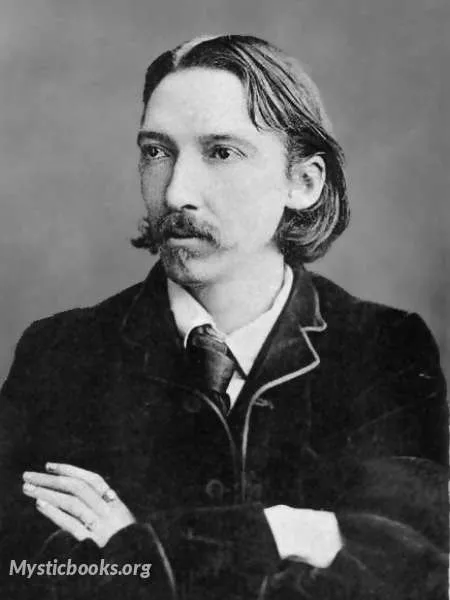
Timeline
Title
Country/Nationality
Robert Louis Stevenson
Stevenson's critical essays on literature contain "few sustained analyses of style of content". In "A Penny Plain and Two-pence Coloured" (1884) he suggests that his own approach owed much to the exaggerated and romantic world that, as a child, he had entered as proud owner of Skelt's Juvenile Drama—a toy set of cardboard characters who were actors in melodramatic dramas. "A Gossip on Romance" (1882) and "A Gossip on a Novel of Dumas's" (1887) imply that it is better to entertain than to instruct.
Stevenson wrote an estimated 700,000 words during his years on Samoa. He completed The Beach of Falesá, the first-person tale of a Scottish copra trader on a South Sea island. Wiltshire is heroic in terms neither of his actions nor a preoccupation with his own soul. Rather he is a man of limited understanding and imagination, comfortable with his own prejudices: where, he wonders, can he find "whites" for his "half caste" daughters. The villains are white, their behaviour towards the islanders ruthlessly duplicitous.
Stevenson saw "The Beach of Falesá" as the ground-breaking work in his turn away from romance to realism. Stevenson wrote to his friend Sidney Colvin:
It is the first realistic South Seas story; I mean with real South Sea character and details of life. Everybody else that has tried, that I have seen, got carried away by the romance, and ended in a kind of sugar candy sham epic, and the whole effect was lost... Now I have got the smell and look of the thing a good deal. You will know more about the South Seas after you have read my little tale than if you had read a library.
The Ebb-Tide (1894), the misadventures of three deadbeats marooned in the Tahitian port of Papeete, has been described as presenting "a microcosm of imperialist society, directed by greedy but incompetent whites, the labour supplied by long-suffering natives who fulfil their duties without orders and are true to the missionary faith which the Europeans make no pretence of respecting". It confirmed the new Realistic turn in Stevenson's writing away from romance and adolescent adventure. The first sentence reads: "Throughout the island world of the Pacific, scattered men of many European races and from almost every grade of society carry activity and disseminate disease". No longer was Stevenson writing about human nature "in terms of a contest between Dr Jekyll and Mr Hyde": "the edges of moral responsibility and the margins of moral judgement were too blurred". As with The Beach of Falesà, in The Ebb Tide contemporary reviewers find parallels with several of Conrad's works: Almayer’s Folly, An Outcast of the Islands, The Nigger of the 'Narcissus'’, Heart of Darkness, Lord Jim.
With his imagination still residing in Scotland and returning to earlier form, Stevenson also wrote Catriona (1893), a sequel to his earlier novel Kidnapped (1886), continuing the adventures of its hero David Balfour.
Although he felt, as a writer, that "there was never any man had so many irons in the fire".by the end of 1893 Stevenson feared that he had "overworked" and exhausted his creative vein.His writing was partly driven by the need to meet the expenses of Vailima. But in a last burst of energy he began work on Weir of Hermiston. "It's so good that it frightens me," he is reported to have exclaimed. He felt that this was the best work he had done. Set in eighteenth century Scotland, it is a story of a society that (however different), like Samoa is witnessing a breakdown of social rules and structures leading to growing moral ambivalence
On 3 December 1894, Stevenson was talking to his wife and straining to open a bottle of wine when he suddenly exclaimed, "What's that?", asked his wife "does my face look strange?", and collapsed. He died within a few hours, probably of a cerebral haemorrhage. He was 44 years old. The Samoans insisted on surrounding his body with a watch-guard during the night and on bearing him on their shoulders to nearby Mount Vaea, where they buried him on a spot overlooking the sea on land donated by British Acting Vice Consul Thomas Trood Stevenson had always wanted his Requiem inscribed on his tomb:
Under the wide and starry sky,
Dig the grave and let me lie.
Glad did I live and gladly die,
And I laid me down with a will.
This be the verse you grave for me:
Here he lies where he longed to be;
Home is the sailor, home from sea,
And the hunter home from the hill.
Stevenson was loved by the Samoans, and his tombstone epigraph was translated to a Samoan song of grief.
Books by Robert Louis Stevenson
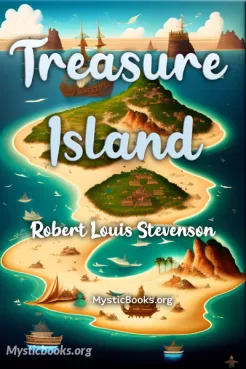
Treasure Island
A heady mix of thrills, mystery, atmosphere and memorable characters, Treasure Island by Robert Louis Stevenson is a classic adventure story that has enthralled both young and old alike ever since it was first published in 1883. Right from the racy o...
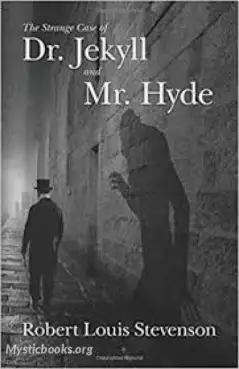
The Strange Case of Dr. Jekyll And Mr. Hyde
A mysterious door-way, an incident of ferocious violence, a respectable and popular scientist, well-known for his enjoyable dinner parties who suddenly changes his will, the brutal killing of an elderly Member of Parliament, a diabolical serum that c...
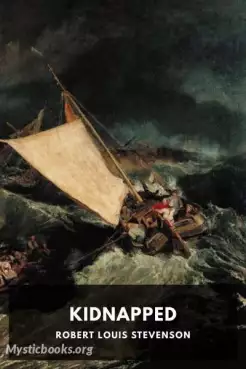
Kidnapped
Kidnapped is the story of a 16-year old young man who is searching for his true birthright and is determined to make a fortune after the death of his parents. This timeless tale by Robert Louis Stevenson follows the life of David Balfour who leaves h...
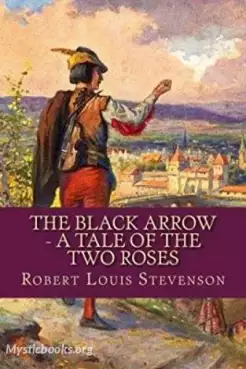
The Black Arrow; a Tale of Two Roses
The Black Arrow: A Tale of the Two Roses is an 1888 novel by Robert Louis Stevenson. It is both a historical adventure novel and a romance novel. It was printed under the pseudonym Captain George North. He alludes to the time gap between the serialis...
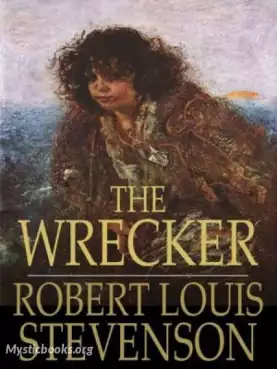
The Wrecker
The Wrecker (1892) is an ocean adventure novel written by Robert Louis Stevenson in collaboration with his stepson Lloyd Osbourne.
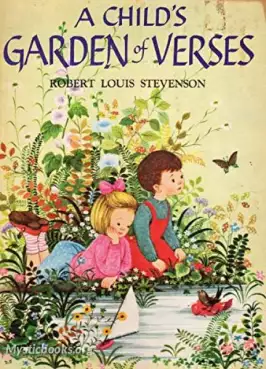
A Child's Garden of Verses
A Child's Garden of Verses is an 1885 volume of 64 poems for children by the Scottish author Robert Louis Stevenson. It has been reprinted many times, often in illustrated versions, and is considered to be one of the most influential children’s works...
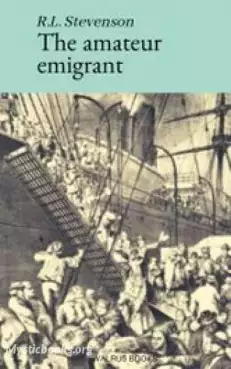
The Amateur Emigrant
The Amateur Emigrant is Robert Louis Stevenson's travel memoir of his journey from Scotland to California in 1879-1880. It is not a complete account, covering the first third, by ship from Europe to New York City. The middle leg of the trip is docume...
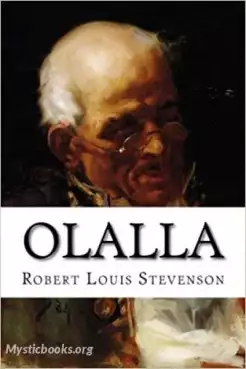
Olalla
"Olalla" is a short story by the Scottish novelist, poet, essayist and travel writer Robert Louis Stevenson. It was first published in the Christmas 1885 issue of The Court and Society Review, then re-published in 1887 as part of the collection The M...
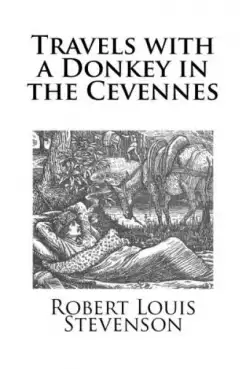
Travels with a Donkey in the Cevennes
Travels with a Donkey in the Cévennes is one of Robert Louis Stevenson's earliest published works and is considered a pioneering classic of outdoor literature.
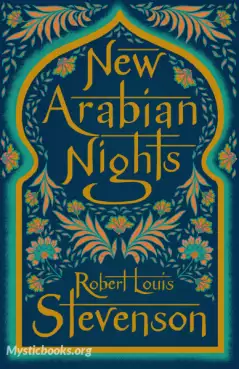
New Arabian Nights
New Arabian Nights is a collection of short stories which include Robert Louis Stevenson's earliest fiction as well as those considered his best work in the genre. The first and longest story stars Prince Florizel of Bohemia who appears in the later...
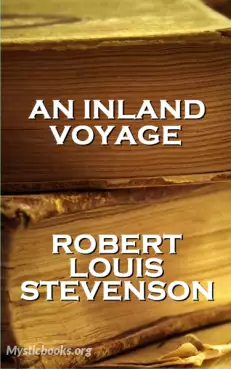
An Inland Voyage
As a young man, Stevenson wished to be financially independent and began his literary career by writing travelogues. This is his first published work, written at a time when travel for pleasure was still a rarity. He and a friend traveled by canoe th...
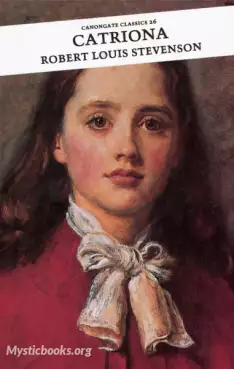
Catriona
Both Kidnapped and its sequel Catriona were initially published in 1886 and 1893, respectively. Since they were both written a century ago, their attraction to both children and adults has not lessened. They are both romantic-adventure books. Only th...
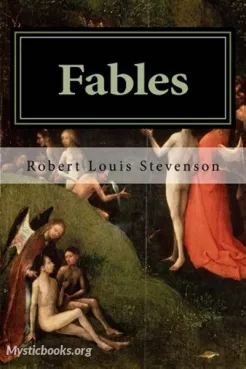
Fables
It is a delightful collection of timeless stories that captivate the imagination of readers. This book invites young readers to explore a world filled with enchanting fables and moral lessons. Originally written in [1896], "Fables" showcases Stevenso...
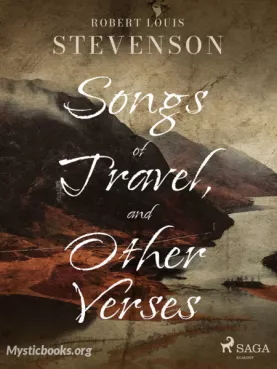
Songs of Travel and Other Verses
Embark on a poetic odyssey through the soul-stirring landscapes of the heart and the world with "Songs of Travel and Other Verses" by Robert Louis Stevenson. In this eloquent collection, Stevenson weaves a poetic tapestry of wanderlust, introspection...

Island Nights' Entertainments
Embark on a captivating journey into the heart of the South Seas with Robert Louis Stevenson's captivating collection of short stories, "Island Nights' Entertainments." Immerse yourself in tales of intrigue, adventure, and the allure of the exotic as...
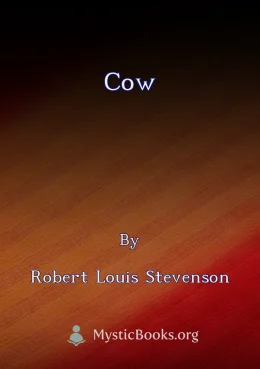
Cow
LibriVox volunteers bring you fourteen different readings of Robert Louis Stevenson’s The Cow, a weekly poetry project. (Summary by Annie Coleman)

Foreign Lands
LibriVox volunteers bring you 17 different recordings of Foreign Lands by Robert Louis Stevenson. This was the weekly poetry project for the week of April 22nd, 2007.
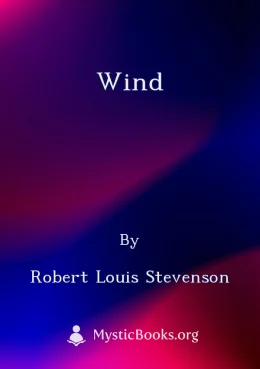
Wind
LibriVox volunteers bring you 13 different recordings of The Wind by Robert Louis Stevenson. This was the weekly poetry project for the week of March 2nd, 2008.
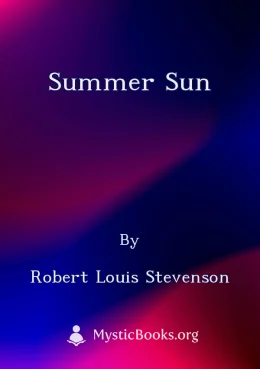
Summer Sun
LibriVox volunteers bring you 16 different recordings of Summer Sun, by Robert Louis Stevenson. This was the weekly poetry project for the week of June 22nd, 2008.
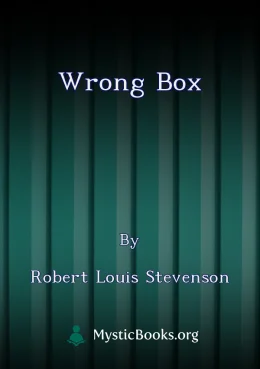
Wrong Box
The Wrong Box is a comedy about the ending of a tontine (a tontine is an arrangement whereby a number of young people subscribe to a fund which is then closed and invested until all but one of the subscribers have died. That last subscriber then rece...

Winter (Stevenson)
Winter by Robert Louis Stevenson is a collection of short poems exploring the beauty, desolation, and introspective qualities of the winter season. Stevenson's evocative language paints vivid imagery of snow, ice, fireside warmth, and the natural wor...
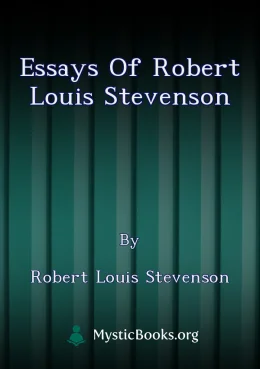
Essays of Robert Louis Stevenson
Robert Louis Stevenson's 'Essays' is a collection of nine thought-provoking pieces that explore a range of topics, from the art of appreciating unattractive scenery to the complex social life of dogs. With a keen eye for observation and a knack for t...

More New Arabian Nights: The Dynamiter
More New Arabian Nights: The Dynamiter is an exciting and entertaining collection of linked short stories that will keep readers on the edge of their seats from beginning to end. Robert Louis Stevenson and Fanny Vandegrift weave a masterful tale of t...
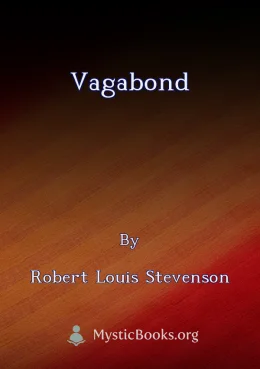
Vagabond
The Vagabond is a classic poem by Robert Louis Stevenson that captures the allure of wandering and the spirit of adventure. Through its lyrical verses, the poem invites readers to embrace the freedom of the open road, to seek new experiences, and to...
Showing 1 to 24 of 36 results